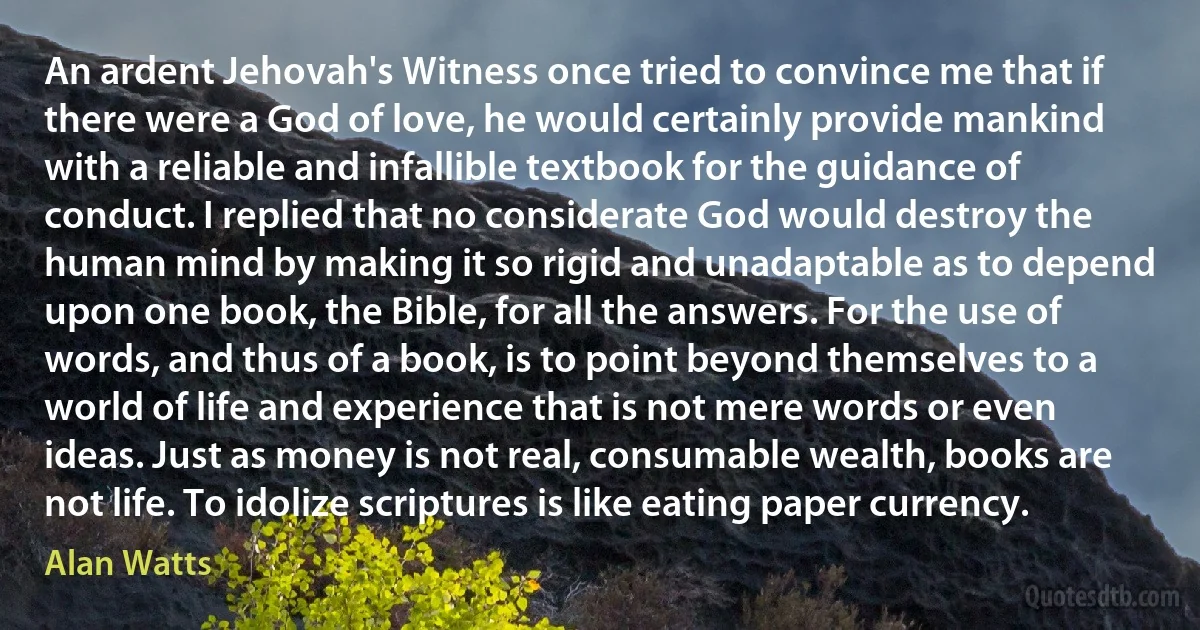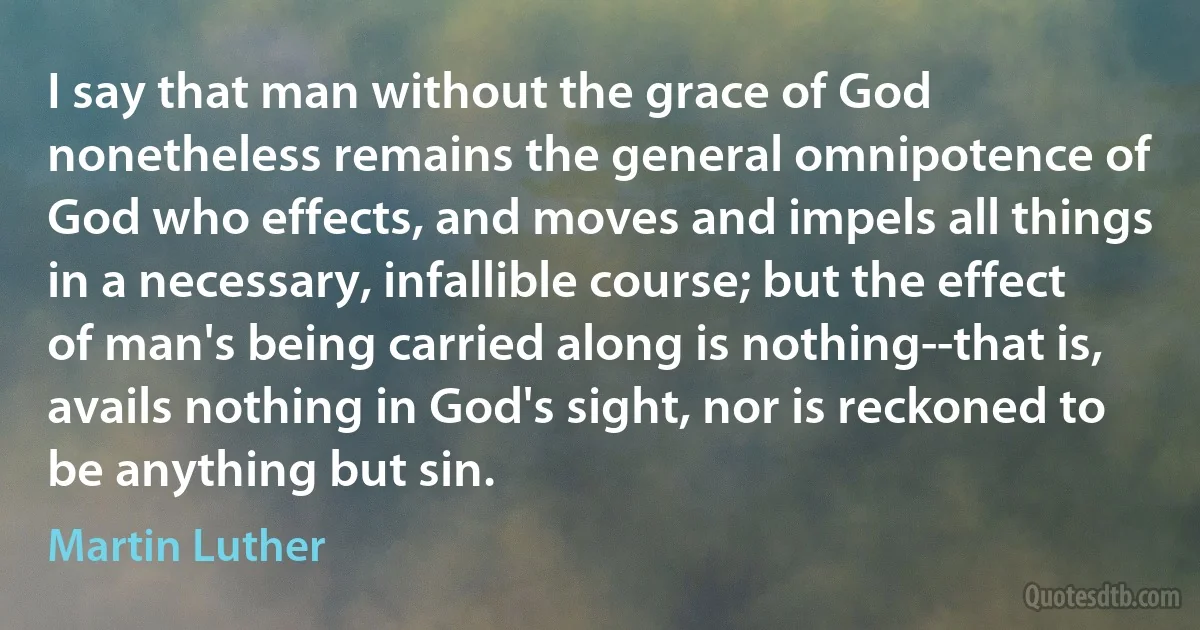Infallible Quotes - page 3
If there are any lessons to be learned from history, it is that we should be skeptical of all points of view, including those of the skeptics. No one is infallible, and no one can claim a monopoly on truth or virtue. It would be contradictory for skepticism to seek to translate itself into a new faith. One must view with caution the promises of any new secular priest who might emerge promising a brave new world-if only his path to clarity and truth is followed. Perhaps the best we can hope for is to temper the intemperate and to tame the perverse temptation that lurks within.

Paul Kurtz
In attempting to expose the views of another, one is forced to make one's own view appear infallible and absolute, which is a procedure altogether to be avoided if one is making a specifically non-evaluative investigation. The second possible approach is nevertheless to combine such a non-evaluative analysis with a definite epistemology. Viewed from the angle of this second approach there are two separate and distinct solutions to the problem of what constitutes reliable knowledge - the one solution may be termed relationism, and the other relativism.

Karl Mannheim
I like the idea of making films about ostensibly absolutely nothing. I like the irrelevant, the tangential, the sidebar excursion to nowhere that suddenly becomes revelatory. That's what all my movies are about. That and the idea that we're in possession of certainty, truth, infallible knowledge, when actually we're just a bunch of apes running around. My films are about people who think they're connected to something, although they're really not.

Errol Morris
[Evolution] has in recent years been challenged in the world of science and is not yet believed in the scientific community to be as infallible as it once was believed. But if it was going to be taught in the schools, then I think that also the biblical theory of creation, which is not a theory but the biblical story of creation, should also be taught.

Ronald Reagan
[Describing the bazar held in Delhi near the Red Fort, Francois Bernier (seventeenth century) says that] "Hither, likewise, the astrologers resort, both Mahometan and Gentile. These wise doctors remain seated in the sun, on a dusty piece of carpet, handling some old mathematical instruments, and having open before them a large book which represents the sign of the Zodiac. In this way they attract the attention of the passenger... by whom they are considered as so many infallible oracles. They tell a poor person his fortune for a payssa... Silly women, wrapping themselves in a white cloth from head to foot, flock to the astrologers, whisper to them all the transaction of their lives, and disclose every secret with no more reserve than is practised by a penitent in the presence of her confessor. The ignorant and infatuated people really believe that the stars have an influence (on their lives) which the astrologers can control.”.

François Bernier
In a time of crisis, with grave questions demanding urgent answer at every moment, no body of men would dare claim to be judged infallible. There was indeed no clear way, but almost always a hideous choice of evils. I can only know, for myself, that my mind will be at rest for having taken no decision inconsistent with what on all the facts I felt right.

Edward Wood, 1st Earl of Halifax
If a prophecy is to be called infallible, I fairly demand that it should state beforehand legibly, clearly, and distinctly that which no man could previously have known, and that the same should thereafter take place at the time appointed, but that it should not take place because it has been predicted. If, however, such a prophecy can only be verified through allegorical interpretations of words and interpretation of words and things; if it be only composed of dark and dubious words, and the expressions it contains are commonplace, vague, and uncertain; if the matter was thought probable, or was foreseen by human cunning; if it occurs because it was predicted; if the words used refer to some other matter and are only applied to the prophecy by a quibble; if it is only written down after the event has occurred; if a prophetic book or passage is given out to be older than it is; or lastly, if the thing predicted does not take place at all, then the prophecy is either doubtful or false.

Hermann Samuel Reimarus
The "through-and-through" universe seems to suffocate me with its infallible impeccable all-pervasiveness. Its necessity, with no possibilities; its relations, with no subjects, make me feel as if I had entered into a contract with no reserved rights ... It seems too buttoned-up and white-chokered and clean-shaven a thing to speak for the vast slow-breathing unconscious Kosmos with its dread abysses and its unknown tides.

William James
Can it be doubtful that this is still the rule of human education; that the human creature needs first of all to be educated not that he may speak, but that he may have something weighty and valuable to say! If speech is the bank-note of an inward capital of culture, of insight and noble human worth, then speech is precious, and the art of speech shall be honored. But if there is no inward capital; if speech represent no real culture of the mind, but an imaginary culture; no bullion, but the fatal and now almost hopeless deficit of such? Alas, alas, said bank-note is then a forged one; passing freely current in the market; but bringing damages to the receiver, to the payer, and to all the world, which are in sad truth infallible, and of amount incalculable.

Thomas Carlyle



